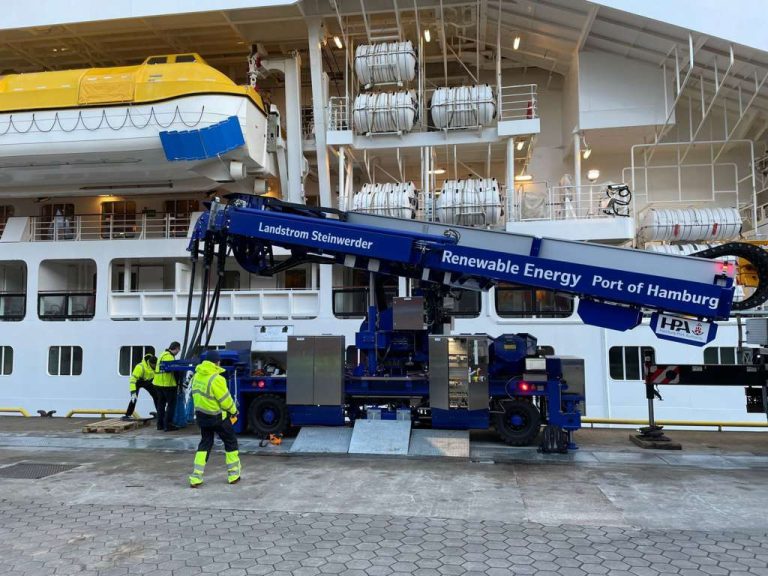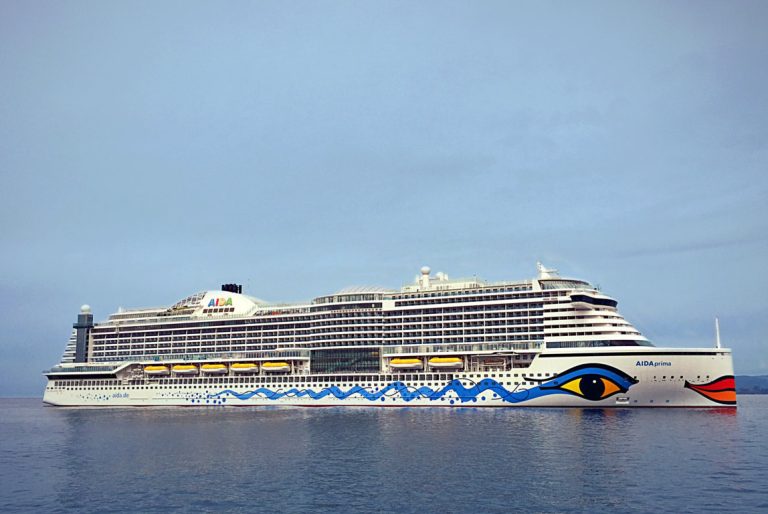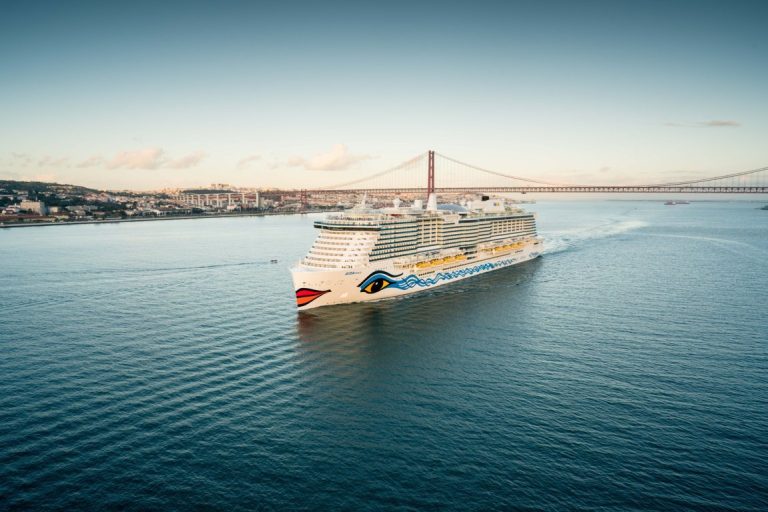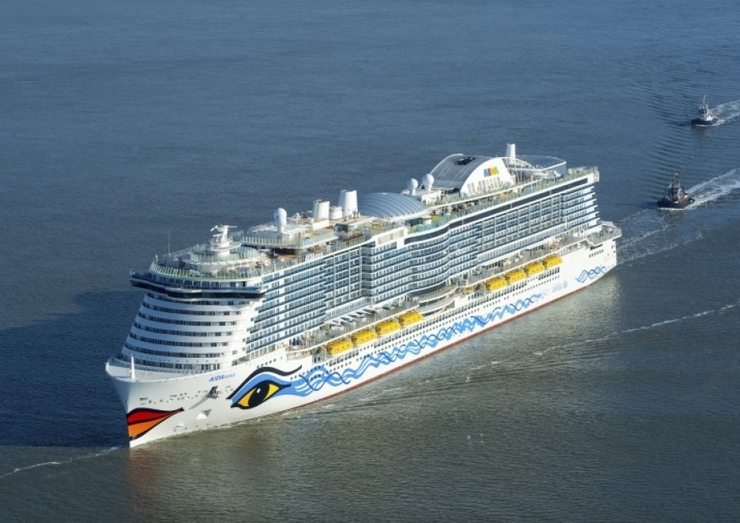AIDA Cruises Pioneer of Sustainability
In today’s context of growing global attention to environmental sustainability and the decarbonization of transportation, the cruise industry faces significant challenges.
The need to reduce environmental impact, limit greenhouse gas emissions, and promote more responsible operational practices has led leading shipping companies to invest in innovative technologies and alternative energy solutions. AIDA Cruises stands out as one of the European leaders in this transition, thanks to a multi-year strategy that integrates the use of shore power, certified biofuels, and advanced onboard energy management systems.
AIDA Cruises makes further progress in the use of shore power and biofuels.
This in-depth analysis illustrates how AIDA Cruises is actively contributing to transforming the cruise market by adopting cutting-edge technological solutions and promoting sustainable practices that not only reduce environmental impact but also create long-term social and economic value. The main initiatives, progress made in the first half of 2025, and future prospects within the group’s decarbonization and modernization strategy will be examined.
In the first half of 2025, AIDA Cruises used over 3,300 tons of ISCC EU certified bio-LNG onboard its ship AIDAnova, an important result demonstrating a concrete commitment to more sustainable maritime mobility. This biofuel comes from biogas agricultural plants distributed throughout Europe and is made suitable for maritime use through a mass balance method at a liquefaction plant in Belgium. The use of bio-LNG, a renewable fuel with a significantly lower carbon footprint compared to conventional natural gas, represents a fundamental step in reducing CO₂ emissions associated with shipping activities.
At the same time, AIDA Cruises has begun using other biofuels, as demonstrated by AIDAprima, which has been using various biofuels since 2022 and successfully tested the 100% use of a residual biofuel (BMF 100) in a pilot project in 2024. According to the producer, this type of fuel allows for a CO₂ emissions reduction of over 90%, confirming the potential of such technologies to contribute to international climate goals.
All LNG-powered ships in the AIDA fleet are also already prepared for the future use of biofuels and e-fuels—synthetic fuels produced from renewable energy sources—a feature that will be further enhanced in the new ships under construction, scheduled for delivery in 2030 and winter 2031/2032. These new vessels will incorporate next-generation multi-fuel propulsion technologies, ready to use a wide range of sustainable fuels.
AIDAprima
One of the most innovative and impactful aspects of AIDA Cruises’ sustainability strategy is the use of shore power, which allows ships to turn off their main engines while docked and draw power directly from the onshore electrical grid. This technology drastically reduces emissions in ports, improving air quality for local communities and cutting pollutant emissions by up to 98%, depending on the local energy mix.
AIDA Cruises was a pioneer in Europe in adopting this technology: as early as 2017, the ship AIDAsol was the first to operate using shore power in the Port of Hamburg Altona, the first facility of its kind in Europe. Thanks to the expansion of shore power infrastructure in major European ports, connections for the AIDA fleet increased from 65 in 2023 to 381 in 2024, already surpassing 250 in the period from January to August 2025 alone. It is expected that by the end of 2025, connections will exceed 400.
Currently, 14 ports in seven European countries offer this possibility to AIDA ships, including Hamburg, Kiel, Warnemünde, Oslo, Stockholm, and Copenhagen. This number is set to grow, also thanks to the company’s active support as it collaborates with port authorities and institutions to test and activate new shore power facilities.
Beyond the use of alternative fuels and shore power, AIDA Cruises invests significant resources to improve the energy efficiency of its ships through innovative technologies. A notable example is the installation aboard AIDAprima, in 2022, of the largest battery storage system in the cruise industry, with a capacity of 10 MWh. This technology optimizes engine operation by keeping them within an optimal performance range, reducing fuel consumption through a process called peak shaving. Excess energy is stored in batteries and reused during peak energy demand periods, further improving overall efficiency.
For these efforts, AIDA Cruises received the 2024 ESG Shipping Award International in Gold, a prestigious recognition awarded to the most virtuous companies in maritime sustainability.
Moreover, the entire AIDA fleet is equipped with integrated energy management systems connected to a group data platform that supports continuous optimization of operations through real-time data analysis. The use of advanced digital technologies, such as machine learning and artificial intelligence, allows increasingly effective and timely identification of opportunities for energy savings and emission reductions.
AIDAnova
Despite considerable progress, the path toward full decarbonization of the cruise sector still presents some important challenges. The limited availability of sustainable biofuels and the currently high cost of e-fuels represent significant obstacles that require coordinated efforts among industry, institutions, and research centers to develop scalable and economically sustainable solutions. Furthermore, the lack of uniform international regulations on the use of alternative fuels onboard cruise ships slows the global spread of these technologies, making regulatory harmonization essential to facilitate large-scale adoption.
However, AIDA Cruises positions itself as a protagonist and promoter of this transformation, actively collaborating with industrial and institutional partners to overcome critical issues and accelerate change. The Evolution strategy, which involves substantial investments and the introduction of technologically advanced new ships, clearly demonstrates the company’s commitment to continuing to innovate and strengthen its dedication to sustainable and responsible tourism.
AIDA Cruises confirms itself as an example of excellence and leadership in the decarbonization process of the cruise sector, demonstrating that sustainability and innovation can go hand in hand with growth and operational efficiency. The adoption of certified biofuels, pioneering use of shore power, and deployment of cutting-edge energy management technologies are key elements of an integrated strategy looking toward the future.
These efforts not only help reduce the environmental impact of navigation activities but also improve the quality of life in port communities and strengthen the cruise sector’s reputation as a responsible and sustainable actor. With its clear vision and the ability to integrate innovation, sustainability, and social responsibility, AIDA Cruises leads a new era in the world of cruising—one defined by opportunity, technology, and environmental respect.
Don’t miss news, updates, and reviews of AIDA Cruises on Cruising Journal, with photos, videos, and cruise deals.




